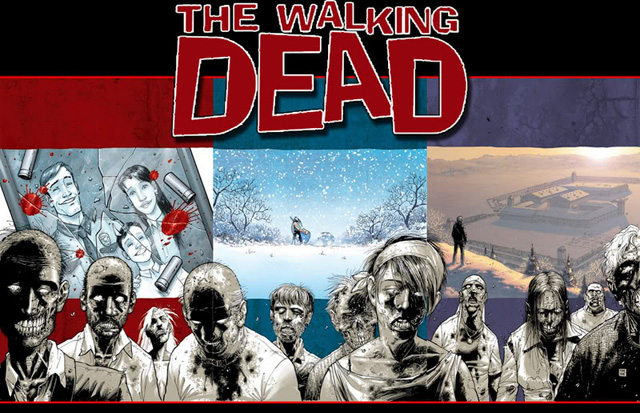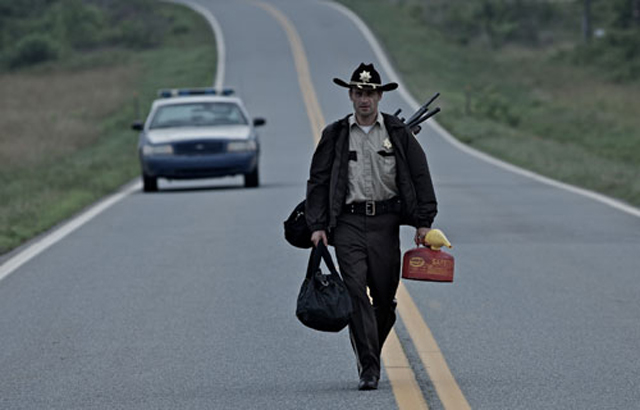
A man looks down the barrel of a loaded rifle, aimed square at the head of the woman he loves. He leans in, ready to pull the trigger and do something he should have done weeks earlier. “Come on, baby.” The realization of what he is about to do engulfs him, and he is overcome with emotion… and shame.
That moment defined the premiere episode of The Walking Dead, and may have set an unprecedented standard for dramatic television.
When we first heard that Robert Kirkman’s pivotal comic book series The Walking Dead was to be made into a television series, it was easy to be both excited and skeptical. Comic-to-anything translations tend to fall apart quickly, and with a premise like The Walking Dead‘s it might have been safe to assume the same thing would happen here. We didn’t know if TV was ready for zombies.
But then the show became a reality, and after watching the premiere episode on Halloween it’s now safe to assume that TV is indeed ready.

The Walking Dead isn’t a show about zombies. Yes, zombies exist here, but much like LOST the show’s focus is on character-driven stories. The zombie epidemic is just the singular loop that ties them all together and the environment in which the stories take place. As characters are introduced to us, including the excellently-cast lead Rick Grimes (played by actor Andrew Lincoln), we find them in mid-stride, lost, and searching for resolution and finality in life.
We almost instantly learn to love or hate characters, trust or distrust. With the characters of Morgan and his son we can’t help but feel that somehow there isn’t hope for their situation. With Grimes we find that hope. We learn to empathize with him, especially in a scene in which he takes out a zombie, fax machine style. “Are you alright? Need a moment?” asks Morgan. Even in Zombieville people still have personal problems.

As premieres go, The Walking Dead was as good as it gets. Terrific cinematography and moody and effective use of lighting — the lifeless gray tones of the hospital, the “walking into the light” of the outside world — set up each scene perfectly. The minimal use of sound was eerie, reminding us of the similar, solidarity-infusing effect found in Castaway. The acting was realistic, but more importantly emotionally thrilling at times.
The exciting and enthralling scenes were strung together expertly: not one was a let down. A simple car alarm sets up one of the most heart-wrenching moments on tv this year. A stolen bicycle makes us almost sympathetic towards an already immobile zombie.
But the real magic is how Writer/Executive Producer Robert Kirkman, also the Writer of the comic book series, translated the books to the small screen. The deviations from the book not only fit in perfectly, but surpass the comic in many ways. The stand-off between Morgan and his wife, for example, was as beautiful as zombie-human interaction could get. The tense situation might have left many of us in self-doubt.
For an hour and a half on a Sunday night, The Walking Dead may have been the most engaging premiere this television season. This is a show about zombies, yet where the zombies come second to personal salvation. This is the kind of show that, if it holds as strong as the premiere, may become a cultural keystone. It was brilliant.
[Images courtesy TWD Productions and AMC TV]

No Comments